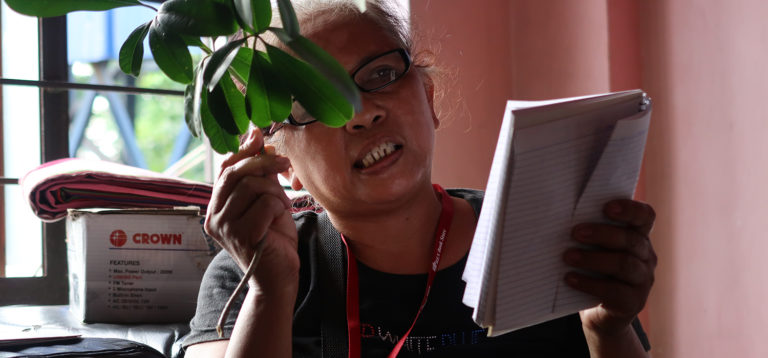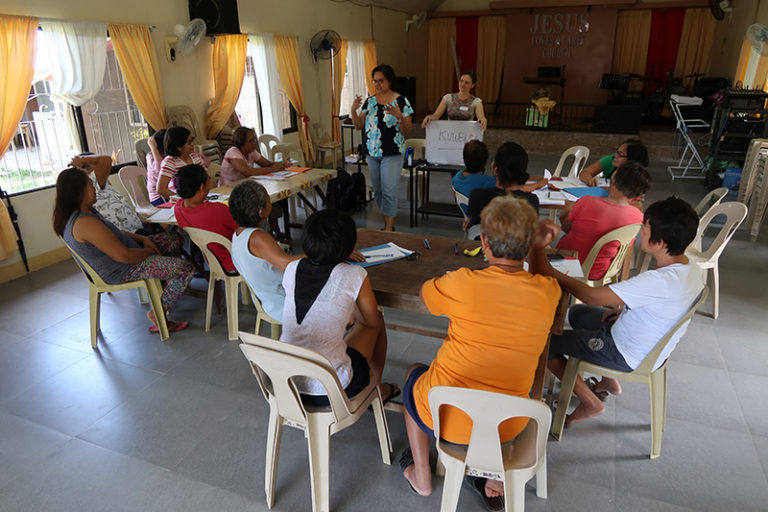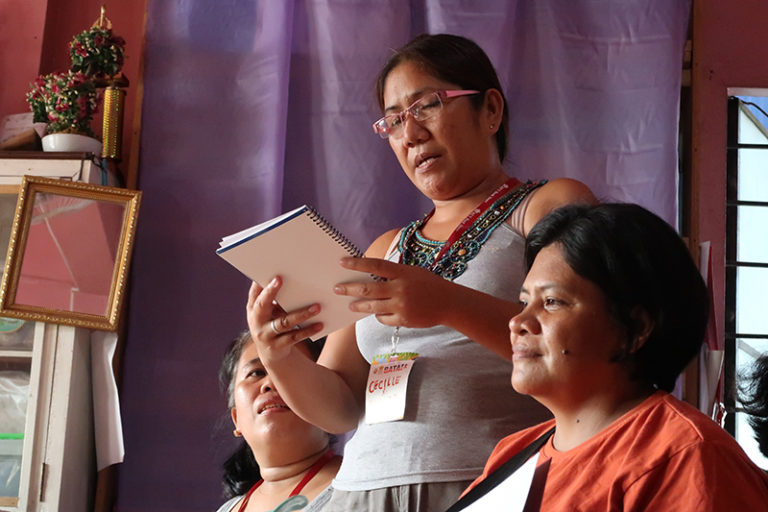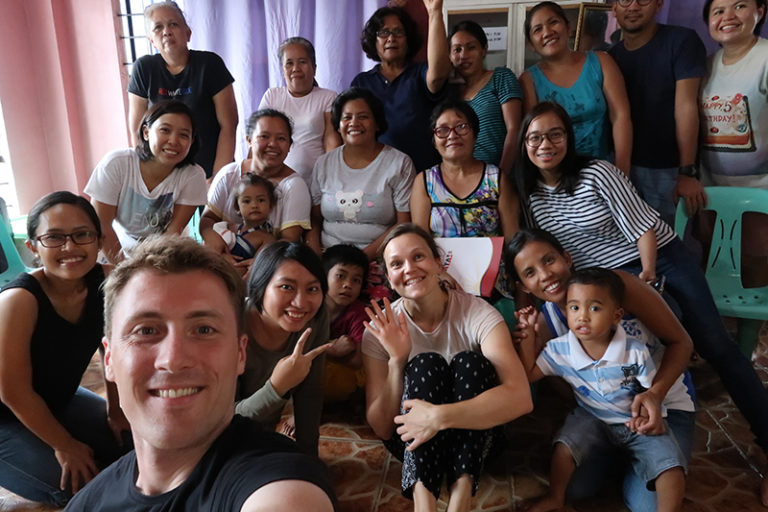Jessica Moyer
The research we conducted in the Philippines this summer explores the potential of 21st century nature writing to empower disadvantaged communities, restore environmental rights at risk, and transform the global conservation agenda.
Nature writing, which entails personal reflection and creative expression through language to record experiences of the natural world, encompasses many different formats: from poems, short stories, fables, essays, and journal entries, to annotated drawings, short skits, lyrical compositions, and – in the modern era – visual and spoken word performance through various digital media.
While the art form has historically been associated with white, Western, upper-middle-class men, and has thus tended to reinforce social segregation and inequity even while inspiring responsible stewardship of the natural world, we re-envisioned it here in the hands of Filipina women as an instrument of sustainable development and environmental justice.

The backdrop for this project was a critique of the current trend within global conservation, which involves monetizing the natural world and incorporating its various components into the economy as valued commodities. Of particular concern were problems identified by a growing number of local communities and civil society organisations in the Philippines and other parts of the developing world.
As laid out in an open letter to the UN, authored by a coalition led by the Philippines-based organization Ibon International, more than a thousand signatories argue that capitalist conservation reinforces corporate rather than local control over natural resources, thus endangering livelihoods, threatening the sovereignty of vulnerable communities, and devaluing place-based knowledge. They also describe that the economization of nature exacerbates rather than addresses existing social inequalities, which in turn fuel further resource exploitation and environmental degradation. The letter’s authors instead call for environmental decision-makers to support a range of alternative knowledges and ecological practices as the ‘building blocks’ of genuine people-centered sustainable development. Our project responded directly to this call.

We held a total of seven nature writing workshops with thirty-six women living in two different communities: one urban (Bagong Silangan, Quezon City) and the other rural (Baruya, Pampanga). Through a range of activities – from journaling and metaphor construction to object personification and various forms of wordplay – we sought to better understand the environmental issues and concerns at the forefront of participants’ minds. Though we borrowed from the literary and political efficacy of nature writing traditions, we let the writers define the terms ‘nature’/’kalikasan’ and ‘environment’/’kapaligiran’ for themselves. (This proved to be an essential feature of the project, as the interpretations that came to light fell well outside any delineations that we might have anticipated!)
By design, it was a two-fold endeavour involving both research inquiry and creative expression. In practice, however, thanks to our dedicated community leaders, inspirational workshop co-facilitators, and most of all the extraordinary participants, the project filled numerous other important and meaningful roles as well. The writers held hands and took a leap of faith into an artistic medium they had little or no experience with – and we all discovered they could soar. The stories they produced were full of insight, emotion, and detail, and above all, were deeply sincere. The women’s unique perspectives as well as vivid imaginations were the subject matter; and they were the experts.

The writing process itself also became an opportunity for connection, healing, exploration and release. After each exercise, the women gently prompted each other to share what they had written (and usually required prompting before deciding to share themselves). During readings, the group would offer praise and often friendly banter; other times a knowing gesture, and occasionally just compassionate silence as the reader choked back tears. They all seemed to have each other’s backs, even while acknowledging their differences, as if the community’s sense of solidarity had transplanted itself in our make-shift classroom.
Ultimately, through a somewhat unconventional and intimately grassroots approach, this project worked to tackle the current global environmental crisis, and its underlying social causes, by amplifying the valuable knowledge and, most importantly, the voices of Filipina women. There is much for the rest of us to learn from the honest accounts they have provided – in their own words – of environmental citizenship, devastating loss, and ambitious hope for the future. Rather than summarize their narratives here or slice up what they have carefully composed, we encourage you to keep an eye out for the complete anthology of their written works, as well as the two accompanying video essays, which we expect to publish in the coming year.
